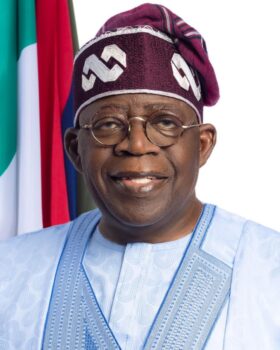President Bola Tinubu has called on the World Bank, International Monetary Fund (IMF) and African Development Bank (AfDB) to scale up financing.
By Salisu Sani-Idris
President Bola Tinubu has called on the World Bank, International Monetary Fund (IMF) and African Development Bank (AfDB) to scale up financing
for climate action.
Tinubu, represented by the Vice-President, Sen. Kashim Shettima, made the call at a Climate Submit during the 80th Session of the United Nations General Assembly (UNGA), in New York, United States of America.
The president stated that the climate emergency demands not just words, but courageous and
sustained leadership.
Tinubu said Nigeria was mobilising $20 to $25 billion in climate finance by 2030, including green bonds, blended
finance, and public-private risk-sharing mechanisms.
Tinubu, therefore, called on global partners to scale up concessional
finance, knowledge sharing, and technology transfer, to accelerate not
just Nigeria’s transition, but Africa’s contribution to a safer, more
sustainable world.
He said,” We aim to
unlock at least seven – 10 billion dollars in grants and concessional finance
from global partners, while promoting technology transfer, regional
energy integration, and green entrepreneurship to drive inclusive
growth.
” For Nigeria, a country acutely vulnerable to
climate impacts, climate action is not a choice; it is an existential
necessity.
“To mobilise resources, we have undertaken significant domestic
reforms.
” We have simplified and modernised our tax laws to ease compliance, removed unproductive fossil fuel subsidies, reduced
burdens on households and businesses, and enhanced revenue
efficiency.
” At the same time, we are strengthening our business
environment through legislation and policies that improve the ease of
doing business.
“This is to attract private capital and expand opportunities for
investment in clean energy and sustainable infrastructure.”
Tinubu said said in March 2025, Nigeria launched the Nigeria Carbon Market
Activation Policy, which establishes a robust framework for highintegrity emissions reductions.
He added, ” While positioning Nigeria as a credible
hub for Article 6, Voluntary and Compliance carbon markets.
“Through this mechanism, our target is to mobilise up to 2.5 billion dollars by 2030
in high-quality credits and related investments.
” We are under no illusion: no country can tackle the climate crisis
alone.
“Like other developing nations, Nigeria requires significant

